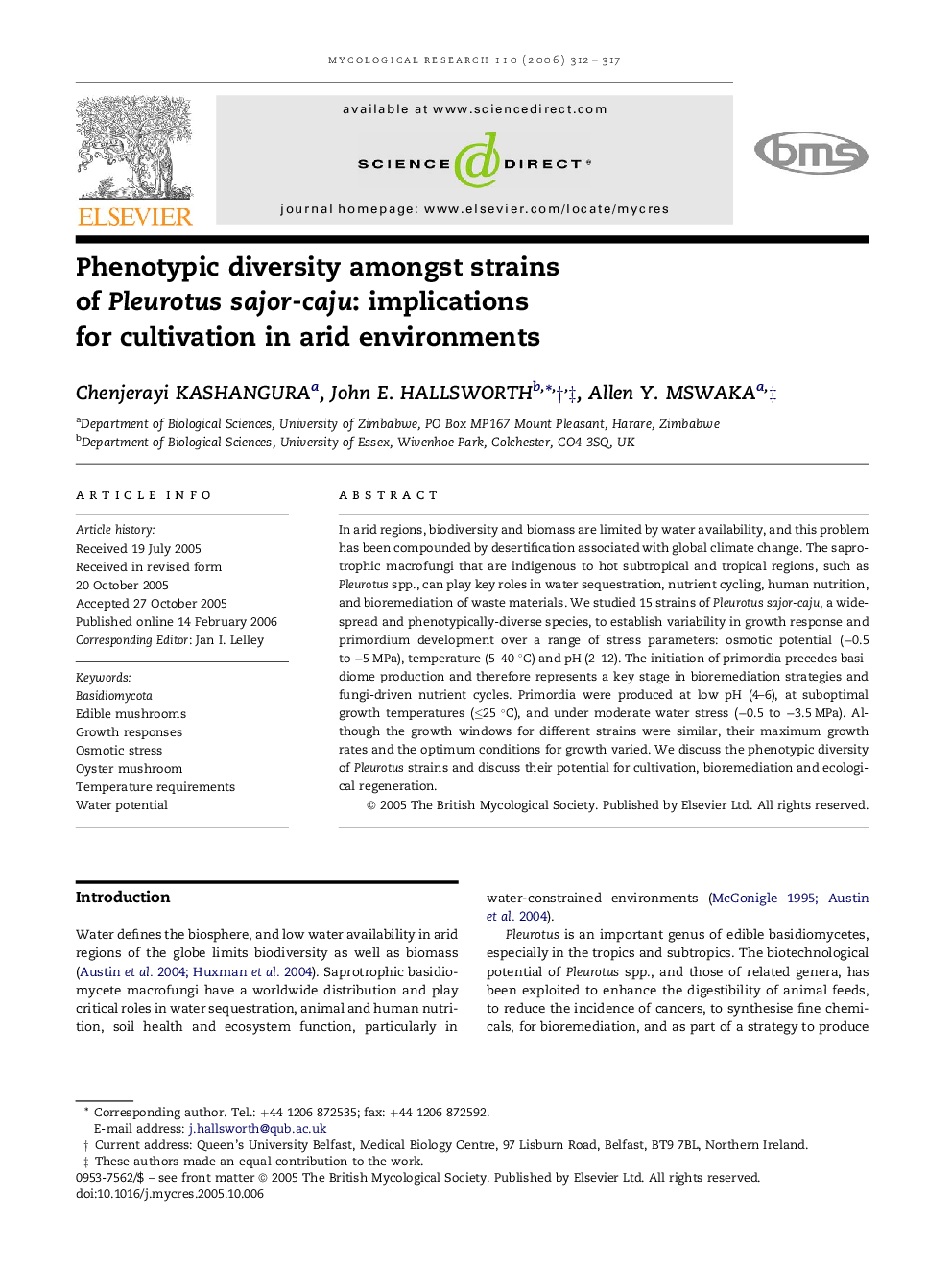| Article ID | Journal | Published Year | Pages | File Type |
|---|---|---|---|---|
| 4358180 | Mycological Research | 2006 | 6 Pages |
Abstract
In arid regions, biodiversity and biomass are limited by water availability, and this problem has been compounded by desertification associated with global climate change. The saprotrophic macrofungi that are indigenous to hot subtropical and tropical regions, such as Pleurotus spp., can play key roles in water sequestration, nutrient cycling, human nutrition, and bioremediation of waste materials. We studied 15 strains of Pleurotus sajor-caju, a widespread and phenotypically-diverse species, to establish variability in growth response and primordium development over a range of stress parameters: osmotic potential (â0.5 to â5 MPa), temperature (5-40 °C) and pH (2-12). The initiation of primordia precedes basidiome production and therefore represents a key stage in bioremediation strategies and fungi-driven nutrient cycles. Primordia were produced at low pH (4-6), at suboptimal growth temperatures (â¤25 °C), and under moderate water stress (â0.5 to â3.5 MPa). Although the growth windows for different strains were similar, their maximum growth rates and the optimum conditions for growth varied. We discuss the phenotypic diversity of Pleurotus strains and discuss their potential for cultivation, bioremediation and ecological regeneration.
Keywords
Related Topics
Life Sciences
Agricultural and Biological Sciences
Agricultural and Biological Sciences (General)
Authors
Chenjerayi Kashangura, John E. Hallsworth, Allen Y. Mswaka,
